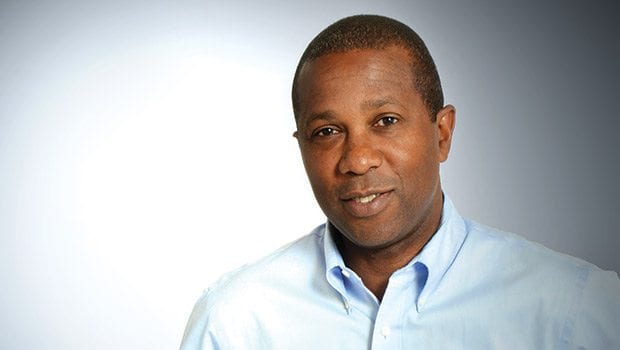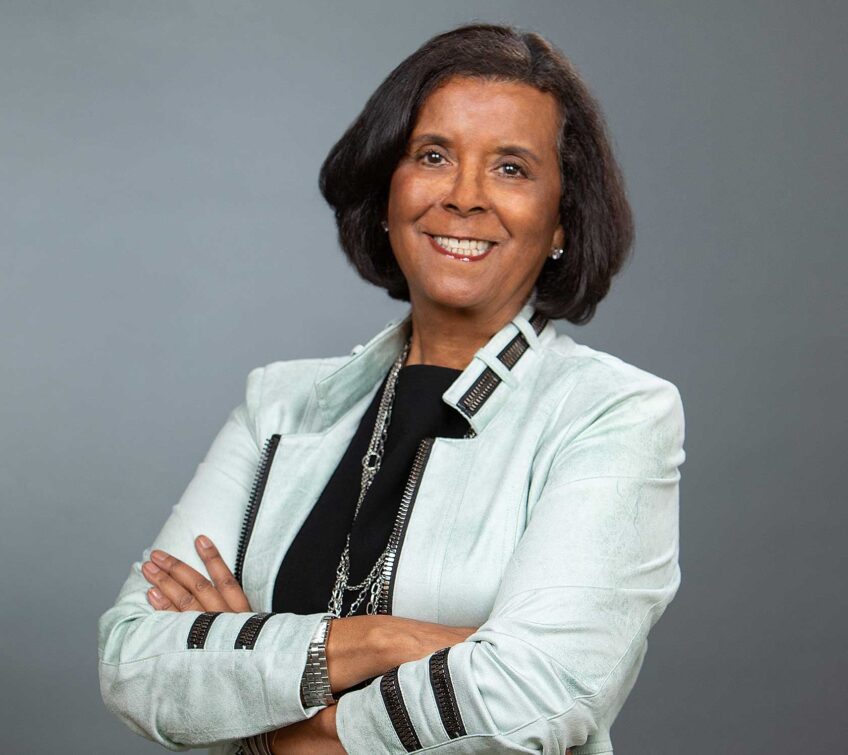
Brian Chapman has gone from studying rocks in college to cleaning up hazardous waste as a small business owner. The 30-year path from geology major at UMass Amherst to running Mill City Environmental in Lowell has not been a straight line, though.
Mill City, with annual revenues of $8 million to $10 million, is one of the few black-owned companies in the environmental cleanup industry.
“There are not a lot of minority firms in what I call the core environmental firms,” Chapman said. “You do have some asbestos abatement companies.”
When Chapman started his business in 2001, its only line of work was removing or treating hazardous waste at contaminated sites. “That was the bread and butter the first couple of years,” he recalled. His firm later branched into extracting cancer-causing asbestos from older structures and supporting commuter rail systems.
The railroad jobs, a step away from strictly environmental work, led to a growth spurt in 2012 after Mill City took on commuter rail subcontracts in Austin, Texas and Albuquerque, N.M. His company started cleaning coaches and inspecting locomotives in rail yards. Revenues went up, and the number of employees jumped from 12 to the current 46.
“There are some years that they’re not spending money to do any (waste) cleanups. Other years, they’re doing a lot of cleanups,” Chapman explained. “You can’t hitch your wagon to that market. … If you’re not diversified, things dry up.”
The new line of business opened after a woman whose company held the subcontracts sold her business, leaving the general contractor out of compliance with federal standards for subcontracting with small businesses. Chapman learned of the opportunity from a mentor and former coworker at his first environmental job.
The general contractor, based in Missouri, has since become Mill City’s top client. “Those are seven-year contracts. They’re steady revenue,” Chapman noted.
Although based in Lowell, where Chapman grew up, his company has performed work beyond Massachusetts in 16 states, stretching from Maine to Georgia to Texas. Mill City has fulfilled contracts ranging from $1,500 to $1.5 million.
Projects in the Boston area have included treating and disposing of sediment from the dredging of the Muddy River, cleaning and hauling sludge from MBTA Red Line tunnels between Porter and Alewife Stations, and removing asbestos from the USS Cassin Young, a World War II destroyer that houses a museum at the Charlestown Navy Yard.
Career trajectory

Author: Don WestYou can’t hitch your wagon to that market … If you’re not diversified, things dry up.” — Brian Chapman
An interest in science since childhood eventually guided Chapman into environmental work. At one point, he aspired to become a doctor.
During his junior year in college, the geology major worked on a professor’s study of groundwater contamination, doing field work near Amherst to determine if road salt stockpiles were leaching into private wells. Then Chapman had a talk about potential careers with the professor, who predicted big growth in environmental science fields.
His student was not yet persuaded.
After graduation in 1985, Chapman tried to get into the Navy, because some friends were signing up. He wanted to be a pilot. He thought ultimately he’d work for Raytheon, which was building Navy frigates in Bath, Maine. But the Navy ruled him out as an aviator because he’s colorblind. He wasn’t interested in being a navigator or supply officer on an aircraft carrier.
So Chapman looked for jobs related to his major. He spotted one in a help wanted ad in The Boston Globe. He clicked with the third interviewer, Brian House, who was year older, grew up in Reading and went to Bates College.
Chapman got the job with Clean Harbors Environmental Inc. as a groundwater technician, cleaning up leaks from underground gasoline tanks at service stations. After 14 years at Clean Harbors, which has since grown into the largest environmental firm in the country, he left in 1999.
Next stop was Foster Wheeler Environmental Corp., where he was a business development officer for a couple years. He learned the government side of the industry — contracts with the Defense Department or Army Corps of Engineers, for instance. He also learned of the federal mandate for small business subcontracting and the need for more quality enterprises to do the specialized work.
The financial capital to take the plunge and start his own business became available when Clean Harbors went public and he sold his stock in the company.
“My sweat equity with Clean Harbors became my equity to start Mill City,” Chapman said. “With that $50,000, I started the Mill City dream.”
He had the advantage of not having to take loan or give up a share of ownership to another investor. He is the sole owner of Mill City.
The first three years, his largest customer for hazardous waste management was Foster Wheeler, his last employer.
His customer base started to expand when Mill City received certification from the State Office of Minority and Women Business Assistance, since renamed the Supplier Diversity Office. Chapman said state agency helped him “penetrate the construction industry, mainly dominated by male, white construction people,” which he called the biggest challenge at the time.
“They were very helpful in getting you through the door,” he said. “You show people you know what you’re doing and you can get it done for the price you said. It’s that initial entry to prove yourself.”
The Initiative for a New Economy, which minority business advocate Milton Benjamin founded in 2006, also was helpful in introducing Chapman to his peers and to executives whose companies were potential clients.
Networking helped double Mill City’s annual revenues from the $4 million to $6 million it was five years ago. It was former coworker House who, after leaving Safe Harbors, tipped Chapman to the opportunities in railroad support work.
He urges entrepreneurs not to confine themselves to business networks, but to volunteer for “community involvement” because “it expands your network. You’ve got to get out of your comfort zone for a while, to let people know who you are and how you can help.”
Chapman currently serves as chairman of the board of the Greater Lowell Boys and Girls Club, which contributed to his social and personal development when was growing up in the city he loves.
Other entrepreneurial entities have recognized Chapman for the quality work he has done at Mill City. The Initiative for a Competitive Inner City based in Roxbury recognized him last year, as did the federal Small Business Administration in 2012.
Looking ahead, Chapman sees Mill City doing more private sector work, particularly on commuter rail. The company’s base has shifted from mostly government work to a more balanced 60 percent private, 40 percent government.
“I kind of see that as the trend, to continue on that private sector growth,” Chapman said. “The railroad support side has the big upside for us. The country itself is putting more and more money into commuter rail.”


![Banner [Virtual] Art Gallery](https://baystatebanner.com/wp-content/uploads/2024/04/Cagen-Luse_Men-at-store-e1713991226112-150x150.jpg)



